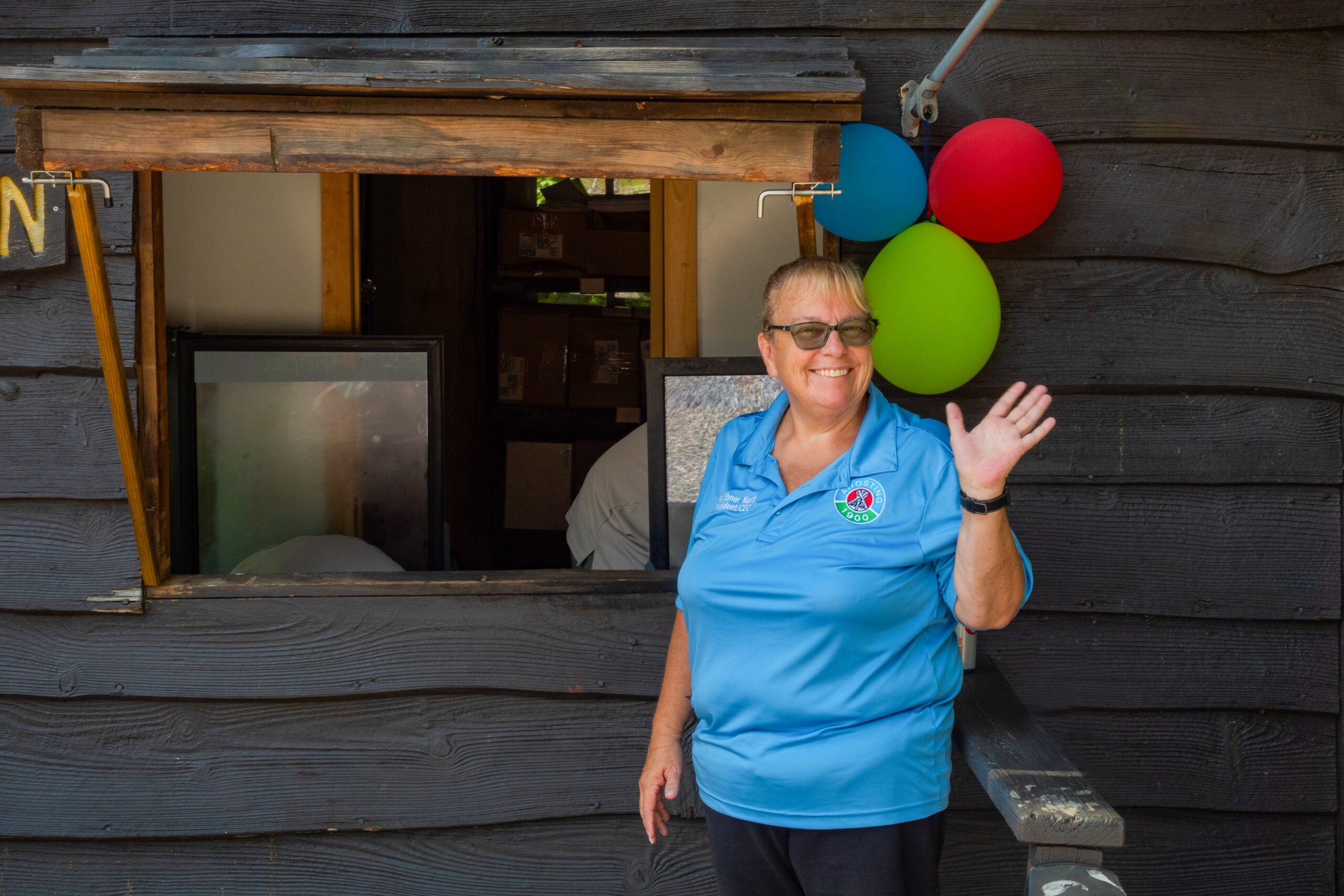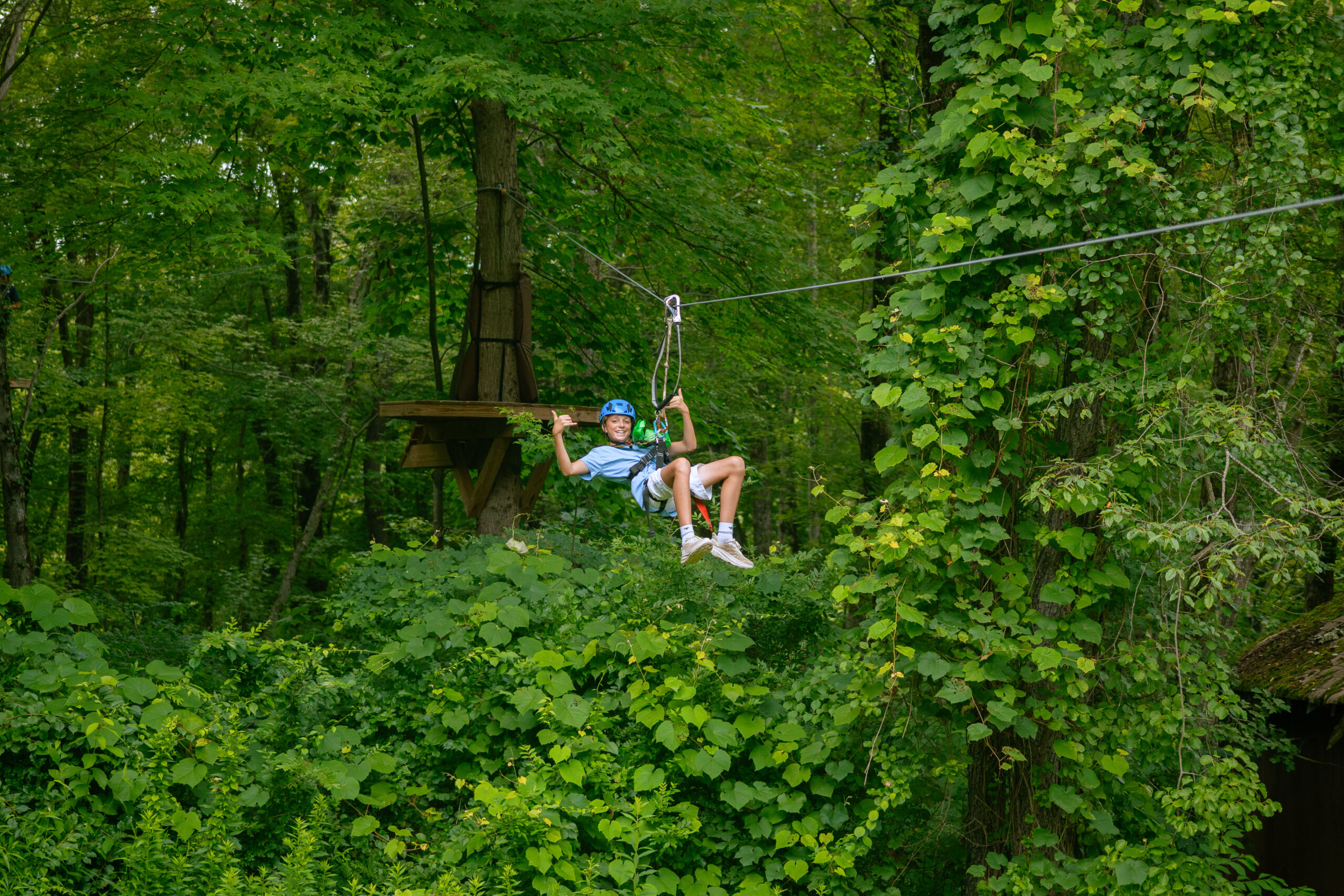Screens dominate childhood today—tablets in classrooms, phones in pockets, video games at home. While technology has its benefits, kids are often missing out on essential growth experiences that only come from unstructured play, face-to-face friendships, and outdoor adventures.
Camp Awosting believes in giving boys a summer free from devices, where they can rediscover freedom, creativity, and connection. Here’s why a screen-free summer is more than a break—it’s a vital part of growing up.
How does too much screen time affect kids today?
Excessive screen time—often 5 to 7 hours daily for many kids—has been tied to disrupted sleep, reduced attention spans, and increased anxiety. Without intentional breaks, children risk becoming overstimulated and socially disconnected. A screen-free summer creates balance and restores healthy rhythms.
Modern childhood is deeply digital. Social interactions often happen through apps rather than face-to-face. Entertainment means endless scrolling, and even schoolwork is online. The result is an “always on” culture where kids rarely disconnect.
Research shows overuse affects mood, concentration, and even physical health. The constant dopamine rush from devices makes it harder for kids to enjoy slower, real-world activities. That’s why Camp Awosting champions unplugged summers—so boys can reset, recharge, and remember what it feels like to live in the moment.
What do children gain from outdoor play instead of screens?
Outdoor play develops physical health, sparks creativity, and reduces stress—benefits that no app or device can replicate. Nature provides the unpredictability and stimulation that kids need for balanced development.
At Camp Awosting, outdoor play is the heartbeat of daily life. Boys spend their days sailing across Bantam Lake, hiking wooded trails, and playing sports on open fields. These activities strengthen muscles, improve stamina, and boost vitamin D—while screens often encourage sitting still.
Equally important is the emotional balance nature provides. Unstructured outdoor time allows boys to invent games, explore freely, and test their creativity. A fallen branch becomes a fort wall; a trail becomes a quest. In nature, kids discover resourcefulness and problem-solving skills that can’t be downloaded.
Camp also emphasizes health & wellness, with nutritious meals and daily activity built into every camper’s experience. This holistic approach ensures boys thrive physically and emotionally—something impossible to achieve behind a screen.
Why does a screen-free summer strengthen friendships?
When kids unplug, they engage more deeply with peers, building authentic friendships based on shared experiences rather than filtered digital interactions. These face-to-face bonds foster teamwork, empathy, and lifelong connections.
Camp Awosting is designed to encourage connection. In cabins, boys share stories, play games, and learn to resolve conflicts together. On the sports field, they cheer one another on. Around the campfire, they laugh, sing, and discover the value of community.
Without phones, boys practice listening, supporting each other, and navigating social dynamics in real time. They learn empathy not through emojis but through eye contact, tone of voice, and shared victories.
Parents often notice the difference when campers return home—sons who are more confident, cooperative, and connected. The friendships made at Awosting last long after summer ends because they’re built on trust, not texts.
For many families, seeing their son thrive in cabin life is one of the most rewarding aspects of choosing a screen-free camp.
How do real-world challenges build resilience in kids?
Overcoming real-world challenges—like navigating a ropes course or learning to sail—teaches kids persistence, confidence, and grit. These lessons in resilience can’t be replicated by screens.
At Awosting, campers face challenges that stretch their limits in safe, supportive ways. Not every boy masters the ropes course on the first try. Canoe trips may test patience when waters get rough. These small struggles become opportunities for growth.
Each accomplishment—whether it’s hitting a bullseye at archery or swimming across the lake—teaches perseverance. Unlike digital games, where “reset” is just a button away, real challenges require effort and resilience.
By summer’s end, boys not only learn new skills but also discover their ability to face setbacks and keep going. This resilience translates into stronger performance at school, in sports, and in future leadership roles.
Why does Camp Awosting enforce a no-device policy?
Camp Awosting enforces a no-device policy because boys thrive when freed from screens. Without digital distractions, campers fully immerse themselves in outdoor adventure, community, and personal growth.
This policy isn’t about restriction—it’s about opportunity. Days at Awosting are filled with sailing, hiking, and sports, leaving little time for boredom. Nights are spent swapping stories with cabin mates, not scrolling through feeds.
The result? Boys who are more present, more connected, and more adventurous. Parents frequently report that their sons come home more confident and independent, with renewed energy and focus.
Awosting’s programs are built around skill-building, teamwork, and leadership—values that screens often distract from. The no-device policy ensures every camper experiences the richness of summer as it was meant to be: unplugged, free, and full of discovery.
How can parents prepare kids for a digital detox at camp?
Parents can prepare their children for a screen-free summer by gradually reducing device use at home, encouraging outdoor family activities, and framing camp as an exciting opportunity.
Some steps include:
- Ease into less screen time: Reduce daily device use in the weeks before camp.
- Model outdoor habits: Go for hikes, bike rides, or backyard games together.
- Frame it positively: Position camp as an adventure, not a punishment.
- Set expectations: Talk about the joys of screen-free days and what life at Awosting looks like.
This preparation helps boys arrive at camp ready to embrace outdoor freedom instead of missing their phones. Parents who actively support the transition often see their sons adjust quickly and thrive in Awosting’s unplugged environment.
Give your son the gift of freedom from screens this summer.
Don’t wait until another summer slips by behind screens. At Camp Awosting, boys discover courage on the ropes course, joy in cabin friendships, and the thrill of conquering the lake. Parents who choose Awosting see sons return taller in confidence, richer in stories, and stronger in character. Spots are limited, and the difference lasts a lifetime. Book your space today and picture your child stepping into the freedom of a screen-free summer.
Takeaways: Excessive screen time impacts kids’ mental, physical, and social health.
- Outdoor play provides creativity, stress relief, and physical strength.
- A screen-free summer strengthens authentic friendships and empathy.
- Real-world challenges at camp build resilience and grit.
- Camp Awosting’s no-device policy ensures boys live fully in the moment.
- Parents can smooth the transition with gradual, supportive steps.
FAQs
Q1: Why is it important for kids to unplug from screens?
Too much screen time can cause sleep disruption, reduced focus, and anxiety. A digital break allows kids to reset and reconnect with the real world.
Q2: What benefits do kids gain from outdoor play?
Outdoor play improves fitness, sparks creativity, lowers stress, and fosters independence—all essential for healthy growth.
Q3: How do summer camps manage no-phone rules?
Reputable camps like Awosting clearly enforce no-device policies and keep campers fully engaged with structured, exciting programs.
Q4: How can parents help kids adjust to a no-device camp?
Reduce screen use gradually, add outdoor family time, and talk positively about the opportunities camp provides.



